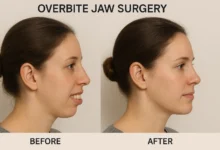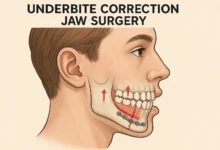Jaw Surgery Weight Loss Effect: Understanding the Impact on Your Body
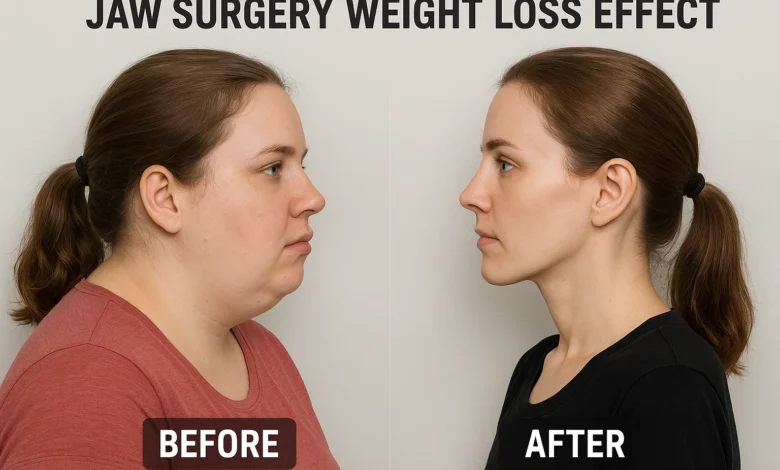
The Jaw Surgery Weight Loss Effect: A Surgeon’s Complete Guide to What Really Happens
Fact: When patients are subjected to orthognathic (jaw) surgery, there is an average weight loss of 8-15 percent of the entire body weight in the few weeks after the surgery. This dramatic jaw surgery weight loss effect is one of the most substantial, although least talked about, parts of the recovery process. When you have searched on the internet using the key-word jaw surgery weight loss Reddit, you must have come across a combination of scare and hope tales.
This conclusive reference which is based on principles of maxillofacial surgery and patient outcome data will de-mystify this phenomenon. We are going to discuss the physiological causes of this weight loss, distinguish between the short-term and long-term alterations to be made, and offer a realistic perspective of the chronology of the events that take place after jaw surgery. Better still, we will prepare you with the measures to control nutrition, reduce risks, and comprehend the entire range of jaw surgery risks and complications as compared to its revolutionary advantages.
What is Jaw Surgery? Learning the Scope of the Procedure.
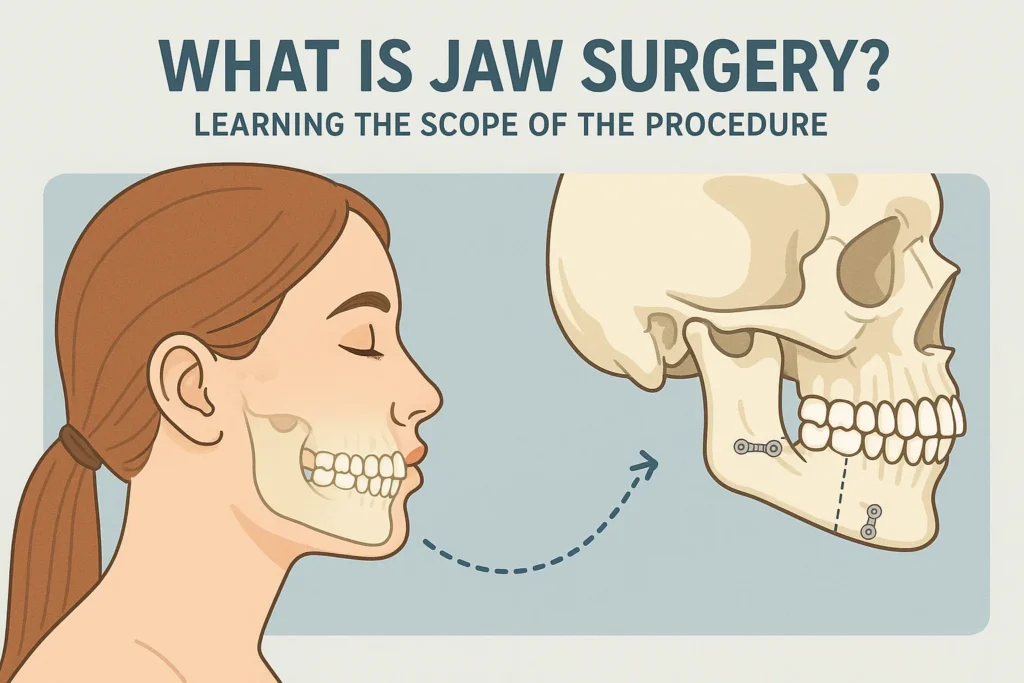
It is important to first find out what jaw surgery is, before discussing the weight loss effect of it. Orthognathic surgery is neither an operation in itself but the type of complex procedures that aim to correct a large number of skeletal and dental abnormalities.
Common Jaw Surgery Types and Benefits:
- Lower Jaw Advancement Surgery (BSSO): Corrects a receding chin (retrognathia).
Lower Jaw Setback Surgery: Addresses an overly prominent chin (prognathism).
- Upper Jaw Surgery (LeFort I Osteotomy): Corrects a gummy smile, open bite, or midface deficiency.
- Genioplasty: Isolated surgery to reshape the chin.
- Jaw Lengthening Surgery: Uses distraction osteogenesis to gradually lengthen the jawbone in severe cases.
Functional factors are the main causes of jaw surgery to enhance chewing, breathing (your sleep apnea), speech, and to relieve jaw joint (TMJ) pain. This dramatic aesthetic enhancement, evident in millions of lower jaw surgery before and after pictures, is the welcome side effect.
Expert Insight: According to a 2024 review in the Journal of Oral and Maxillofacial Surgery, the decision for surgery is a balance of risk and reward. “While the pros and cons of jaw surgery must be carefully weighed for each patient, the functional and quality-of-life improvements for appropriately selected individuals are often profound and life-changing.”
The Primary Driver of the Jaw Surgery Weight Loss Effect
Then does jaw surgery make one lose weight? The response is a resounding yes but it is not like a diet or exercise program. The post-operative recovery protocol is an almost unavoidable cause of the weight loss, rather than a metabolic one.
Its action is simple: your teeth will be wired or banded or otherwise incapacitated in some way, and a strictly liquid diet will be imposed. There is an extreme decrease in the consumption of calories, along with an increase in the energy needs of the body to heal, which leads to a considerable deficit in calories.
The Physiological Perfect Storm:
- Severe Caloric Restriction: It is incredibly challenging to consume a maintenance level of calories through liquids alone, especially when you may have a reduced appetite due to pain, medication, and general discomfort.
- High Metabolic Demand: Healing from major bone surgery is energetically expensive. Your body is working overtime to repair bone and soft tissue, which can raise your basal metabolic rate.
- Muscle Atrophy: The masseter (jaw) muscles and other facial muscles are used minimally for weeks. This leads to a loss of muscle mass, which directly contributes to weight loss.
What to Expect: A Realistic Timeline of Weight Loss and Recovery
Understanding the phased recovery process is key to managing expectations about the jaw surgery weight loss effect.
Phase 1: The Liquid-Only Diet (Weeks 1-6)
The most dramatic of his weight loss is the period. Patients are limited to clear fluids, and then to full liquids, such as protein shakes, broths, and blended soups.
What is the weight loss in this post jaw surgery? The majority of patients lose 10-20 pounds, and it depends on the initial weight, the metabolism, and diligence in the nutritional intake.
Phase 2: The Soft/No-Chew Diet (Weeks 6-12+)
Moving forward to healing, you can then move to foods that are mashed, scrambled eggs, yogurt, and really soft pasta. This assists in the stabilization of weight although most patients continue to find it difficult to achieve their caloric intake before surgery because of the lingering swelling, numbness and altered oral environment.
Phase 3: Long-Term Stabilization (3 +Months)
When you resume normal diet, your weight will stabilize. Other patients recover part of the lost weight, whereas others hold on to the new lower weight. The long term weight loss effect of jaw surgery is an extremely personal event that is contingent on post-recovery eating and physical activity.
Beyond the Scale: The Comprehensive Risks and Benefits of Jaw Surgery
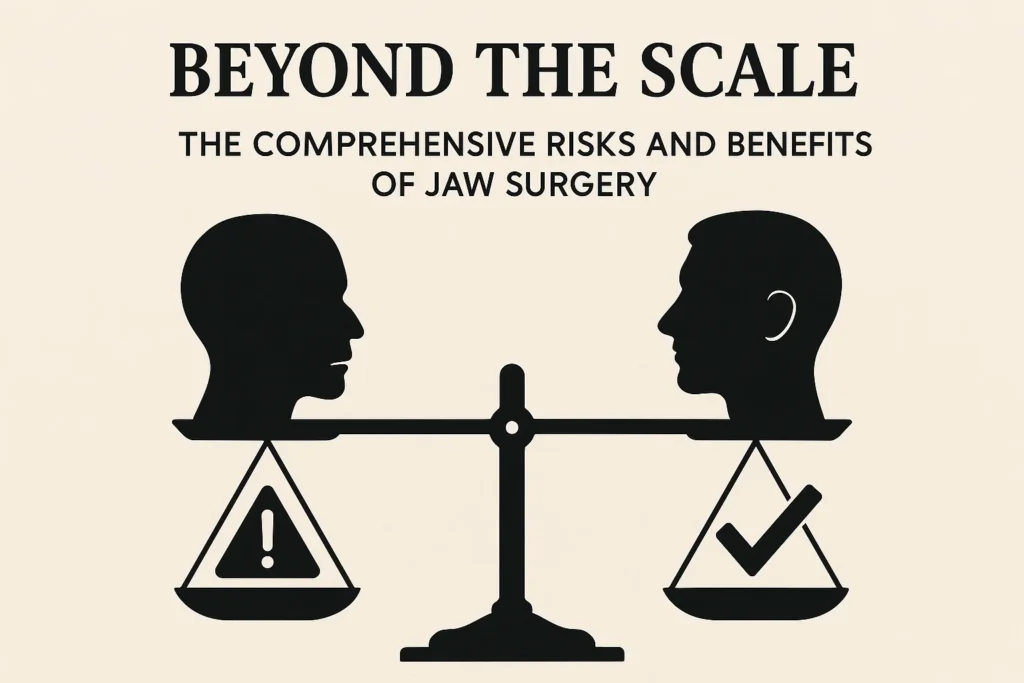
The jaw surgery weight loss effect is just one piece of a much larger puzzle. A balanced view of jaw surgery risks and complications versus its benefits is essential for informed consent.
The Potential Benefits: More Than a New Profile
- Dramatically Improved Function: The most frequently reported quality-of-life improvement is the ability to chew.
- Obstructive sleep apnea: Lower jaw advancement surgery is curative, by opening the airway, and thereby curing obstructive sleep apnea.
- Removal of Chronic Pain: By aligning the jaw, years of TMJ pain, headaches and neck strains can be removed.
- Improved Facial Appearance: The surgery coordinates with facial features and this can affect self esteem in a significant positive manner.
The Potential Risks and Jaw Surgery Complications Years Later
- Predicted, transient Side Effects: These are numbness (paresthesia), swelling, and bruising. The numbness is resolved in most cases, but in some cases, it can be permanent.
- Infection: It is a risk factor in any operation, and it is controlled by sterile technique and occasionally antibiotics.
- Relapse: In a small proportion of cases, the jaws may shift in a minute back to their original position with time.
- Revision Surgery: Sometimes, the effects are not flawless, and the secondary operation can be requested or necessary.
- Malunion/Non-union: The bones will occasionally be healed in the wrong position or fail to heal altogether.
Critical Consideration: The question “can you die from jaw surgery?” is a sobering one. As with any major surgery performed under general anesthesia, there is a non-zero risk of death from catastrophic events like a severe allergic reaction, pulmonary embolism, or massive hemorrhage. However, in the hands of an experienced, board-certified maxillofacial surgeon in a hospital setting, the mortality rate is exceptionally low—estimated to be less than 1 in 10,000.
Managing Nutrition and Mitigating Excessive Weight Loss
Proactive nutritional management is the single most effective strategy to control the jaw surgery weight loss effect and support optimal healing.
Your Pre-Surgery “Liquid Diet” Shopping List:
- Protein Powder, high quality: It is the building block of tissue repair. Goal of 1.5-2.0 gram of protein per kg. body weight.
- Mass Gainers or Meal Replacement Shakes: Such products as Ensure Plus or Boost Very High Calorie are concentrated food.
- Bone Broth: The broth is high in collagen and minerals that aid in healing the bones.
- Blended Soups: Soups made of cream-based (such as potato leek or cream of mushroom) blended until smooth.
- Fruit and Vegetable Smoothies: To get the vitamins and fiber.Pro Tip: Spend money on a high powered blender (such as a Vitamix or Blendtec) and a lot of squeeze bottles. They will make your best friends, and you will be able to drink thick and nutrient-filled shakes without much effort.
Do Retainers Straighten Teeth? The Truth Behind Post-Orthodontic Care
Frequently Asked Questions (FAQ)
1. Is the weight loss after jaw surgery permanent?
Not necessarily. The loss of weight at the start is mostly as a result of the liquid diet. As soon as you start a normal diet, you are likely to reach a stable weight. Most patients gain some weight, which is used by other patients as a trigger to follow up long-term healthy behaviors. It depends on the choices you make after recovery.
2. How painful is jaw surgery?
Pain levels are subjective, though in most cases, patients complain that the pain is severe but treatable by prescription medication. The feeling is commonly detailed as a severe form of pressure and aching, and not painful. Most people find the dietary restrictions to be the most difficult and a general sense of being locked down to be more challenging than actual pain.
3. Jaw surgery: Does it alter your face?
Yes, a great ways and means. Jaw surgery aims at normalizing skeletal imbalance. This releases the facial structure in itself- making it more symmetrical and profiled, as well as the connection of the nose, lips and the chin. It is the reestablishment of the equilibrium, rather than a random change.
4. What are the usual jaw surgery long-term side effects?
The lower jaw surgery can impair the inferior alveolar nerve, which is the most frequent long term outcome with some amount of permanent numbness in the lower lip, chin, or gums. To the majority, this sensation turns into a sort of new normal, and it is not annoying. Other long-term problems that may occur are slight relapse or alterations in the TMJ, however most of the time the surgery enhances this problem.
5. What is the length of the full recovery time?
Though the initial swelling will resolve within 2-4 weeks and you may resume light work, it will take up to one year or more to fully recover. It is during this period that it is necessary to wait before the bones get fully developed, sensation starts coming back (as much as it can) and you get used to your new bite and face psychologically.
Conclusion: Weighing the Transformative Journey
The weight loss effect of jaw surgery is quite a tangible, indeed shocking, aspect of the orthognathic surgery process. It acts as a physical reminder of the physical intensity of the procedure. But it is a transitional stage in a bigger life-altering process.
When thinking of this direction, don’t think about the scale. The main reasons why people have to undergo jaw surgery relate to guaranteed functionality, pain relief, and improved life quality as a whole. With proper mental and nutritious preceding to the recovery, you can successfully maneuver the jaw surgery weight loss period, and come out a stronger, healthier, and more functional member of yourself.
Next step: Have a consultation appointment with an oral and maxillofacial surgeon that is board-certified. Be ready with questions not only on aesthetics, but on functional outcomes, detailed recovery protocols and how they specifically deal with the nutritional issues patients encounter.
Further Reading: To prepare the financial side of this experience, read our guide on how to negotiate insurance on orthognathic surgery.
Disclosure: The article is not intended to be interpreted as medical advice but is informational. The given information is founded on the existing surgical principles and patient-reported outcomes. Each patient is an individual and each case of surgery is an individual. A full evaluation and discussing of your specific diagnosis, treatment options, risks and expected outcomes will require you to engage in consultation with a qualified, board-certified oral and maxillofacial surgeon.

